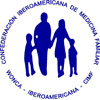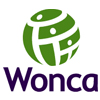Rural Amazon: the difficulty of health access
Resumo
Objetivos: Health Promotion, Nutrition Assessment, Women‘s Health and Primary Care Assesment were the guiding principles of the program beginning . Based on this, the group has planned several specific objectives for each trip, designed to achieve an overall goal by the end of the year.
Metodologia ou Descrição da Experiência: In the first year, 12 trips were made for three different towns, where they worked for five days. Technological and digital communication resources was virtually nonexistent in two of the cities. Communication by cell was too difficult, the only recourse they could have had was the material that could be put on a small boat to cross the river. Their greatest ally to solve the problems and adapt to any changes was, undoubtedly, creativity. To reach remote communities, boats offered by local governments were used. Some areas were two hours away (and there were others further). The rest of the way was on foot. In times of drought, it may means to walk a mile on a beach.
Resultados: Several portions of the population were targeted on the actions. Pregnant women, children, elderly and teens were approached personally. In addition, radios and loudspeakers were used to spread knowledge to those who couldn’t be reach. However, a concern was pending: Access to health care was somewhat precarious. In the urban part of the city people could be without doctors for 15 days, having their consults and treatment only with the nurses. The rural area should wait medical visits that occurred only once a month. This means that in an emergency a two-hour boat ride to the nearest polyclinic could not count on medical presence on the site.
Conclusão ou Hipóteses: This experience allowed each participant in the program to see that accident prevention measures are essential, especially in areas of difficult access that probably will not have a doctor assistance soon (even with the Mais Médicos program). Prevention campaigns should be immediate and measures for quick access to quality health require great dedication.
Palavras-chave
Texto completo:
PDF (English)Apontamentos
- Não há apontamentos.
Este periódico é de responsabilidade das associações:
Apoio institucional:







